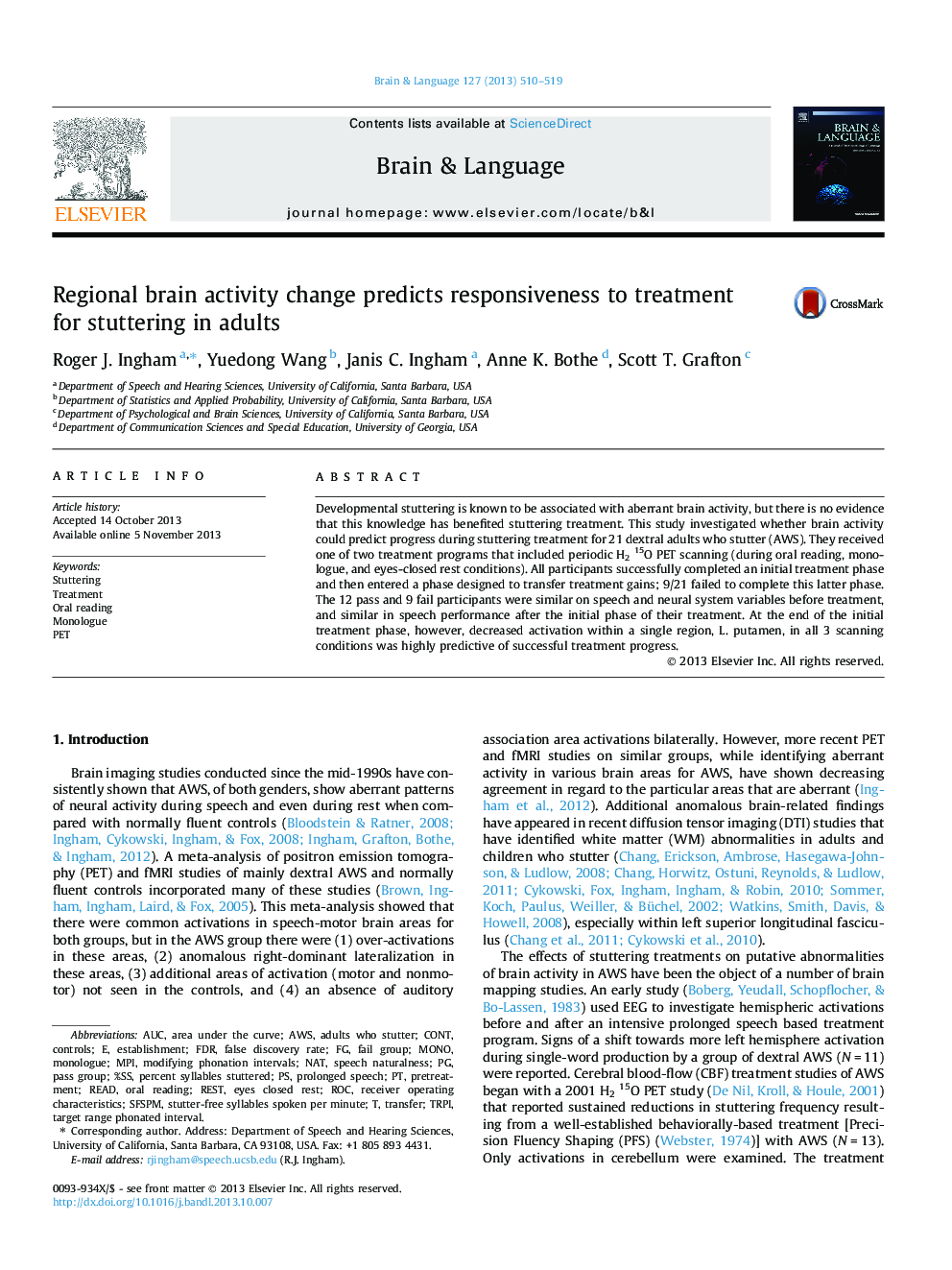| Article ID | Journal | Published Year | Pages | File Type |
|---|---|---|---|---|
| 10456396 | Brain and Language | 2013 | 10 Pages |
Abstract
Developmental stuttering is known to be associated with aberrant brain activity, but there is no evidence that this knowledge has benefited stuttering treatment. This study investigated whether brain activity could predict progress during stuttering treatment for 21 dextral adults who stutter (AWS). They received one of two treatment programs that included periodic H215O PET scanning (during oral reading, monologue, and eyes-closed rest conditions). All participants successfully completed an initial treatment phase and then entered a phase designed to transfer treatment gains; 9/21 failed to complete this latter phase. The 12 pass and 9 fail participants were similar on speech and neural system variables before treatment, and similar in speech performance after the initial phase of their treatment. At the end of the initial treatment phase, however, decreased activation within a single region, L. putamen, in all 3 scanning conditions was highly predictive of successful treatment progress.
Keywords
Related Topics
Life Sciences
Neuroscience
Biological Psychiatry
Authors
Roger J. Ingham, Yuedong Wang, Janis C. Ingham, Anne K. Bothe, Scott T. Grafton,
